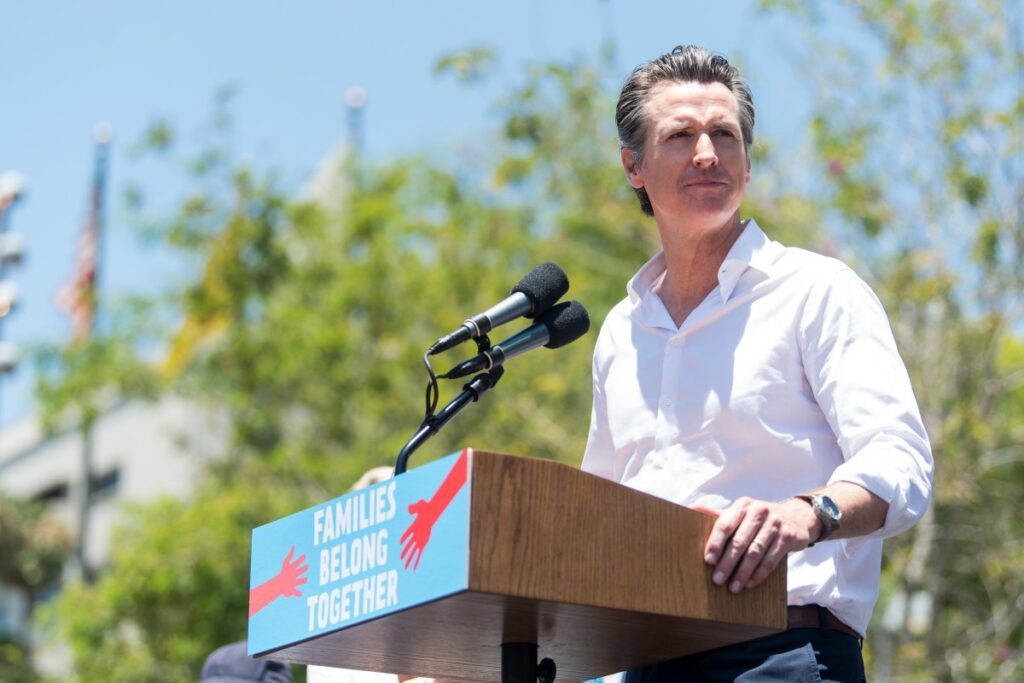California Governor Vetoes Controversial AI Regulation Bill
In a significant move, California Governor Gavin Newsom has opted to veto SB 1047, a contentious piece of legislation that aimed to establish regulations for artificial intelligence development. The bill, championed by State Senator Scott Wiener, sought to hold companies accountable for ensuring safety protocols are in place to prevent critical harms related to AI systems.
A Closer Look at SB 1047
SB 1047 proposed that organizations developing AI models worth more than $100 million and utilizing a staggering 10^26 FLOPS (floating point operations per second) during training would be required to implement stringent safety measures. This included potential liabilities for harms caused by their AI systems.
However, the bill faced strong opposition from a slew of voices in Silicon Valley, including prominent companies like OpenAI and influential figures such as Meta’s chief AI scientist, Yann LeCun. Interestingly, even some Democratic leaders, including U.S. Congressman Ro Khanna, raised concerns about the implications of the proposed regulations. Despite amendments meant to address these worries, the sentiment against the bill persisted.
The Governor’s Reservations
Ahead of the veto, Newsom had hinted at his reservations about the bill’s broad approach. In his statement following the veto, the governor expressed, “While well-intentioned, SB 1047 does not take into account whether an AI system is deployed in high-risk environments, involves critical decision-making, or the use of sensitive data.” He critiqued the blanket application of stringent standards to even basic AI functionalities, questioning the efficacy of such measures for safeguarding the public.
“The best approach needs to focus on where the real risks lie,” he emphasized, sending a clear message about the need for nuanced regulation.
Support and Criticism
Reactions to the veto have been mixed. Nancy Pelosi, a longtime House Speaker, echoed that SB 1047 was “well-intentioned but ill-informed.” After the announcement, she commended Newsom for recognizing the potential for small entrepreneurs and academic institutions to flourish in the AI landscape, rather than allowing big tech to take the lead.
In stark contrast, Senator Wiener characterized the veto as “a setback for everyone who believes in oversight of massive corporations.” He argued that the debate surrounding the bill propelled discussions on AI safety to a global audience, emphasizing its importance in shaping a safer technological future.
Moving Forward with AI Regulation
Despite the dismissal of SB 1047, Newsom’s administration has not shied away from taking action on AI regulation. His office noted the signing of 18 bills in the past month alone, aimed at creating effective guidelines for deploying AI technologies. The governor has also enlisted the expertise of notable figures such as Fei-Fei Li, Tino Cuéllar, and Jennifer Tour Chayes to assist in crafting “workable guardrails” for generative AI.
Fei-Fei Li, often hailed as the “godmother of AI,” previously criticized SB 1047, arguing it could harm California’s emerging AI ecosystem. This indicates a pointed focus on balancing innovation with safety, a challenge that resonates within the tech community.
Conclusion: What’s Next?
As the conversation around AI regulation continues to evolve, it’s clear that policymakers are navigating a complex landscape. From discussions sparked by SB 1047 to the subsequent actions taken by Newsom’s administration, the need for thoughtful regulation that protects the public while nurturing innovation is paramount.
The AI Buzz Hub team is excited to see where these breakthroughs take us. Want to stay in the loop on all things AI? Subscribe to our newsletter or share this article with your fellow enthusiasts.




